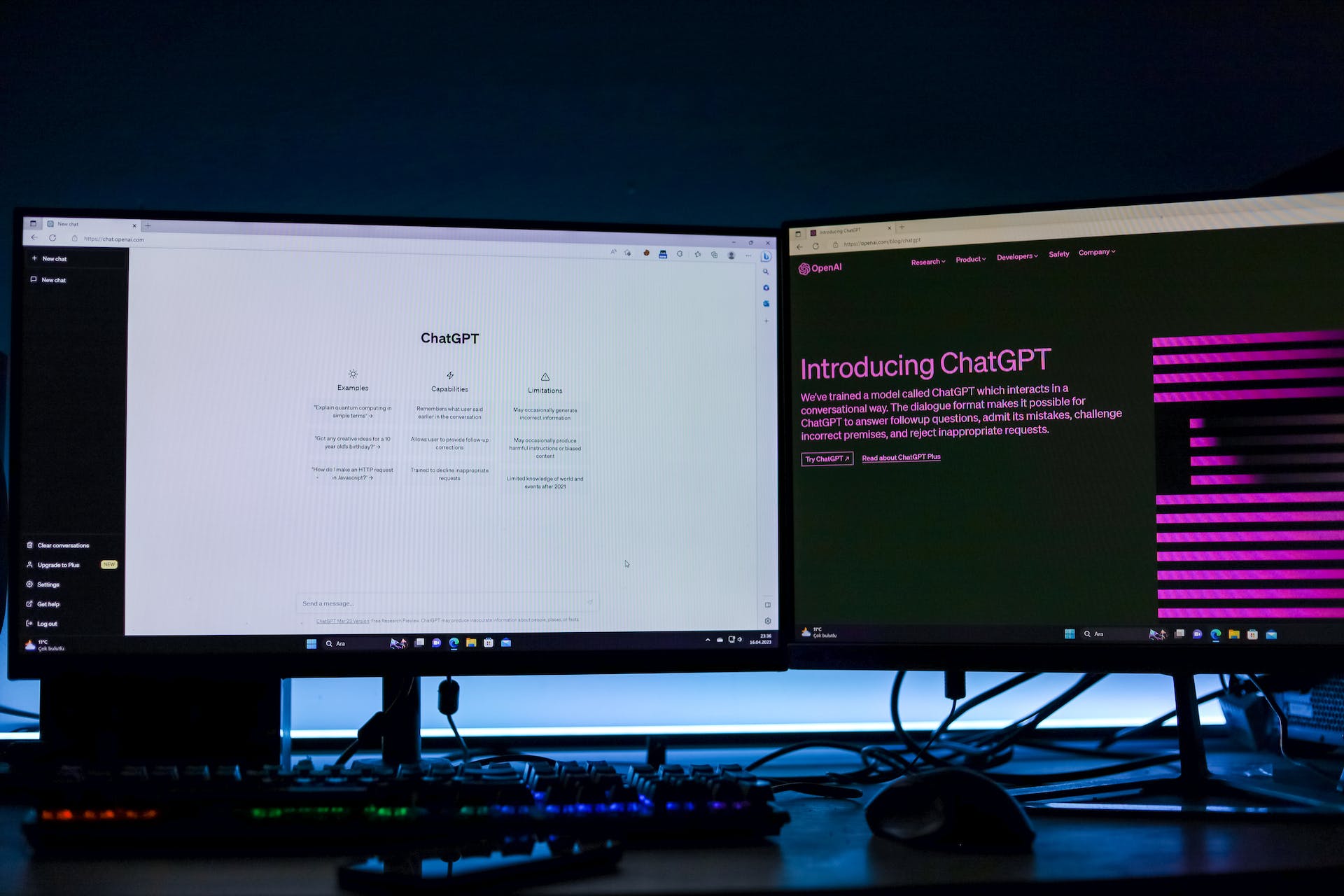By Dr Jason Yong
Prompt engineering is the process of refining prompts that a person can input into a generative artificial intelligence service to generate text, solutions, or even images.
Photos by Melih Can / pexels.com
ChatGPT is one such AI model developed by OpenAI that can generate human-like responses to text-based prompts. While it has many potential applications, its use as a search engine has raised concerns about its impact on critical thinking skills, particularly in higher education and beyond.
AI and Its Impact on Critical Thinking Skills
ChatGPT’s capabilities make it an attractive tool for educators in the field of software development, as students can use it to receive instant assistance, generate code snippets, and explore programming concepts. The model’s ability to contextualise and provide coherent responses has positioned it as a valuable resource for learning and problem-solving.
However, the widespread use of ChatGPT raises questions about its potential negative impact on students’ critical thinking skills. Critical thinking involves the ability to analyse and synthesise information to solve complex problems. While ChatGPT can offer quick solutions and explanations, it may inadvertently hinder the development of crucial thinking skills.
Unlike traditional search engines like Google, which provide a list of links and sources, ChatGPT generates pre-written responses to questions based on statistical matches and affinities. Convenient as it is, this can also lead to a decline in critical thinking skills, as students may become overly reliant on ChatGPT to provide answers instead of actively engaging in the learning process. For example, imagine a student is working on a computer science assignment and comes across a problem they don’t know how to solve. Instead of trying to work through the problem themselves, they turn to ChatGPT for help.
This over-reliance on instant solutions can lead to a superficial understanding of core concepts, inhibiting the development of deeper analytical skills.
Hindrance to Problem-Solving Strategies
In addition, ChatGPT, while powerful, may provide solutions based on common patterns and approaches. This can limit students’ exposure to diverse problem-solving strategies and stifle creativity.
It could even introduce the risk of students becoming confined to a narrow set of solutions, hindering their ability to think outside the box.
Thus, while ChatGPT undeniably offers great potential for improving the learning experience, its uses have raised concerns about the impact on critical thinking skills, particularly in developing student’s capabilities.
It is vital for educators and the general public to be aware of these concerns and to take steps to ensure that future learners position ChatGPT as a supplementary resource rather than a primary source of information.
The opinions expressed in this article are the author’s own and do not reflect the view of Swinburne University of Technology Sarawak Campus. Dr Jason Yong is a lecturer with the Faculty of Engineering, Computing and Science. His research interests are in IoT, cybersecurity, micro/nanosolution processed electronics and nanofabrication. Dr Yong is contactable at jhyong@swinburne.edu.my

